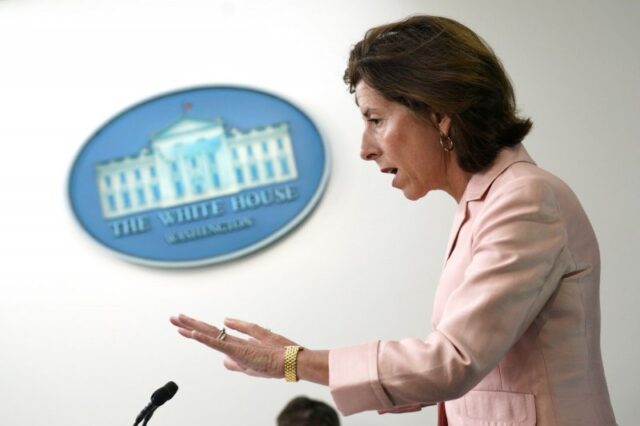Sept. 7 (UPI) — U.S. companies that receive funding from a bill that aims to boost domestic manufacturing of semiconductor chips will be prohibited for a decade from building advanced technology facilities in China, the Biden administration said, citing national security concerns.
Commerce Secretary Gina Raimondo announced the condition Tuesday during a White House press conference discussing the implementation strategy for the $50 billion CHIPS and Science Act that President Joe Biden signed into law last month.
The act provides tens of billions of dollars worth of federal grants for domestic semiconductor manufacturing and research, and comes amid a global shortage of the electronic component.
Raimondo described the China prohibition as one of the many taxpayer protections and guardrails that are part of the act’s implementation strategy to prevent companies that receive funds from compromising U.S. national security.
“They’re not allowed to use this money to invest in China. They can’t develop leading-edge technologies in China. They can’t send latest technology overseas,” she said.
Companies that receive CHIPS funding will only be able to expand their so-called mature node factories in the Asian country that serve only the Chinese market, she said.
Other taxpayer protections include prohibitions on using CHIPS funding on stock buybacks as well as the hiring of experts who will be charged with negotiating deals for the funds with the private companies that will need to prove the money they request is “absolutely necessary,” she said.
“They’re not going to get any more than necessary to make these investments,” she said.
The Commerce Department expects to be able to receive applications for CHIPS funding no later than February, Raimondo added.
Biden had promoted the CHIPS Act as an important tool in securing national and economic security.
In late July as lawmakers were still contemplating how to cast ballots on the act, Biden argued that despite having invented the semiconductor, the United States now relies on Taiwan and China for the crucial technological component, which puts U.S. industries, including its defense industry, in a “fragile” position.
“Should China decided to withhold its production or inhibit Taiwan from exporting its chips or building them, we would have a serious economic and, eventually, national security issue on hands,” he said during the teleconference.
During her press conference in Washington, D.C., on Tuesday, Raimondo said that the past year has shown the impact the chip shortage has had on families.
Rising car prices have driven a third of inflation due to the dearth in supply for the electronic components, she said, adding that it has also resulted in factory workers laid off and bare shelves where once appliances for sale sat.
“With this funding, we’re going to make sure that the United States is never again in a position where our national security interests are compromised or key industries are immobilized due to our inability to produce essential semiconductors here at home,” she said.

COMMENTS
Please let us know if you're having issues with commenting.